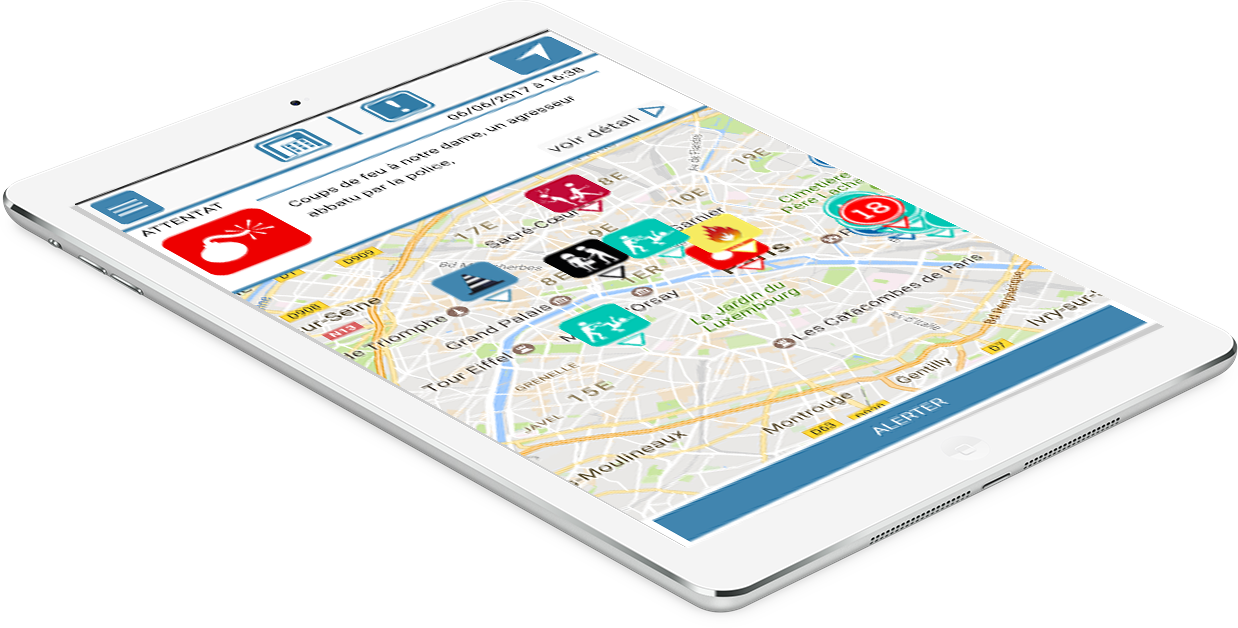Robberies are a serious situation and robbers are frequently armed. It is recommended to cooperate with the requests of your attacker. Communication and dialog with the attacker may allow the tension to be reduced and to avoid too much aggression.
As a foreigner, you are easy to spot and your lack of familiarity with the locations you visit increases your risk of an attack. Depending on the country where you are, the types of attacks may range from simple crime to an organised attack.
There are two types of attacks:
– An opportunistic attack. This is a random attack which depends on the contest and possibilities offered to the attacker. Excluding certain locations and areas, it is difficult to identify and prevent the context of this type of attack. They primarily take place amidst a surprise and it is the possibility and temptation given to the attacker which prevail. The attitude and behaviour of the person attacked can also be a trigger.
– Targeted attack: this is an attack which is prepared, premeditated and planned. Prior planning allows attackers to prepare their action by following and observing the potential victim, looking at their habits, schedule and daily movements
Your surroundings:
– Take care of your positon in the street. Ideally walk along large well-lit streets at night.
– Avoid groupings of people that you may come into contact with.
– Ask yourself, when moving around, what is the most likely danger and safest place of shelter.
– Make rational use of the place where you are located. Observe the possibilities for escape around you. If you are in a closed location, bar or restaurant for instance, locate the various exits. If you are in the street avoid going into places where it would be easy to isolate you.
– Check those areas where you could be surprised along your itinerary.
Attitude to adopt:
– Do not adopt any attitude or posture of a victim, do not avoid the glance of others and adopt a posture of self-confidence. The behaviour as a victim often leads to an attack.
– Avoid moving around with valuables and external signs of wealth.
– Be discrete when you take money out and avoid paying in stores with large denominations. Put your money in various pockets so as not to keep all of your money in one place.
How to respond to an aggression
How to flee
You should only use this option where it is possible and your physical integrity has little chance of being threatened. If your attacker points a weapon at you, you need to accept his/her requests. If your attacker is a long way away and does not have a weapon that can reach you, escape can be an option. In this instance, try to escape towards:
– An area with a high concentration of people. The presence of a crowd around you may dissuade your attacker from following you and attacking you given the risks taken and potential witnesses.
– An institutional area or secure area such as a police station, fire station, State building, commercial area with security agents, etc.
– If your attack takes place at night, seek a well-lit place and favour those streets which are large so as not to be isolated in a dark which will only assist attackers.
Dialogue
In the event of an aggression, it is very important to protect yourself by talking. This will allow you to reduce the level of aggression.
– Try to work out the reason and motivation of your attacker. Why is s/he attacking you? What is the purpose? Try to initiate a discussion on these factors and calm him/her down. Otherwise, by quickly responding to his/her request, this may allow you to avoid physical aggression.
– If your attacker is armed, raise your hands and speak calmly. Do not scream. Do not forget that, in these circumstances, stress is reciprocal. Your attacker is also in an unusual situation and you must not try to second guess his/her reactions. By shouting, the attacker may lose control and this could give him/her an additional reason to attack you physically. An attacker may also be under the influence of drugs or alcohol which may make his/her reactions more unpredictable.
– Try to control your fear as best as possible. If during discussion, your attacker senses your fear, this can be used as a psychological advantage. Do not forget that your stress stops you from reasoning.
– The way you look at your attacker should not show any defiance but should not be overly hostile. You need to look at him/her without staring him/her out.
– Try to exploit the weaknesses of your attacker by making an appreciation of the relationship of strength and analysing the resources he/she has, the time he/she attacks you and the environment in which you are located. To a certain extent, try to put yourself in his shoes.
During the attack
If it is not possible to escape or flee, simply try to limit the time of the attack as much as possible. To do so:
– Do as the attacker asks. Your material and financial assets are worth nothing compared to your physical integrity.
– If your attacker begins to hit you, try, as far as possible, to protect the vital parts of your body (head and neck). During the attack, try not to fall to the ground, as in this position you will be at your most vulnerable.
What to do after an attack
– If you can, do not remain on the site of the attack. Find a public place to take refuge.
– Inform your local contact person in the country. This person can help you to appreciate the situation and allow you to try and move on from the incident. If you do not have any local contact person, you should notify your hotel.
– Notify your embassy, who will be able to offer you useful recommendations in line with the country where you are. If your administrative documents have been stolen, they can assist in having these re-issued.
– Depending on the country where you are, try to prioritise your calls. The police is not always the best person to contact in the case of an attack.



